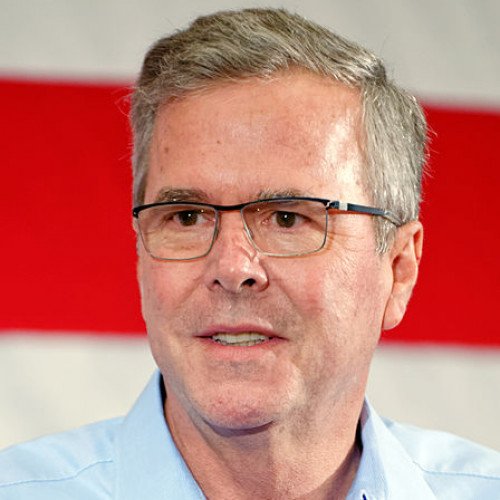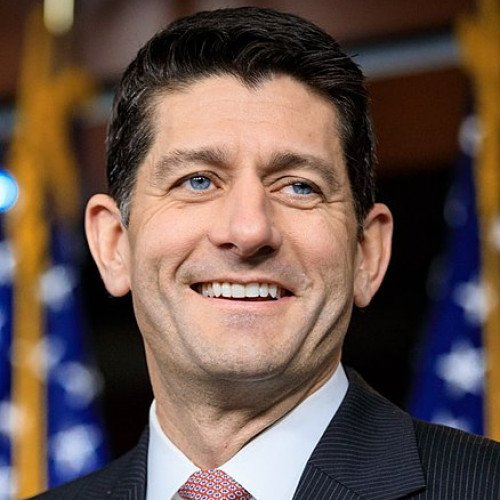Jeb Bush VS Paul Ryan

Jeb Bush
John Ellis "Jeb" Bush (born February 11, 1953) is an American politician who served as the 43rd Governor of Florida from 1999 to 2007. Bush, who grew up in Houston, is the second son of the late former President George H. W. Bush and former First Lady Barbara Bush, and a younger brother of former President George W. Bush. He graduated from Phillips Academy in Andover, Massachusetts, and attended the University of Texas at Austin, where he earned a degree in Latin American affairs. In 1980, he moved to Florida and pursued a career in real estate development, and in 1986 became Florida's Secretary of Commerce until 1988. At that time, he joined his father's successful campaign for the Presidency. In 1994, Bush made his first run for office, losing the election for governor by less than two percentage points to the incumbent Lawton Chiles. Bush ran again in 1998 and defeated Lieutenant Governor Buddy MacKay with 55 percent of the vote. He ran for reelection in 2002, defeating Bill McBride and winning with 56 percent, to become Florida's first two-term Republican governor. During his eight years as governor, Bush pushed an ambitious Everglades conservation plan, supported caps for medical malpractice litigation, launched a Medicaid privatization pilot program, and instituted reforms to the state education system, including the issuance of vouchers and promoting school choice. Bush announced his presidential candidacy on June 15, 2015. He suspended his campaign on February 20, 2016, shortly after the South Carolina primary and endorsed Senator Ted Cruz on March 23, 2016.
Statistics for this Xoptio

Paul Ryan
Paul Davis Ryan (born January 29, 1970) is a retired American politician who served as the 54th speaker of the United States House of Representatives from October 2015 to January 2019. He was also the 2012 vice presidential nominee of the Republican Party, running unsuccessfully alongside Mitt Romney. Ryan, a native of Janesville, Wisconsin, graduated from Miami University in 1992. He spent five years working for Republicans in Washington, D.C. and returned to Wisconsin in 1997 to work at his family's construction company. Ryan was elected to Congress to represent Wisconsin's 1st congressional district the following year, replacing an incumbent Republican who ran for U.S. Senate. Ryan would represent the district for 20 years. He chaired the House Budget Committee from 2011 to 2015 and briefly chaired the House Ways and Means Committee in 2015 prior to being elected Speaker of the House in October 2015 following John Boehner's retirement. A self-proclaimed deficit hawk, Ryan was a major proponent of Social Security privatization in the mid-2000s. In the 2010s, two proposals heavily influenced by Ryan—"The Path to Prosperity" and "A Better Way"—advocated for the privatization of Medicare, the conversion of Medicaid into a block grant program, the repeal of the Affordable Care Act, and significant federal tax cuts. As Speaker, he had a role in passage of the Tax Cuts and Jobs Act of 2017. His other major piece of legislation, the American Health Care Act of 2017, passed the House but failed in the Senate by one vote. Despite his past fiscal conservative rhetoric, Ryan's tenure as Speaker of the House—most of which coincided with a period of unified Republican control of the federal government—saw a significant increase in federal government spending and deficits. Ryan declined to run for re-election in the 2018 midterm elections. With the Democratic Party taking control of the House of Representatives, Nancy Pelosi succeeded Ryan as Speaker of the House.